4 Macro Factors Impacting the Agricultural Economy

What is the state of the U.S. economy? What is the threat of a recession? How will these macro factors impact the agricultural economy?
Your farm is being impacted by a myriad of macro and micro economic risks. Kanlaya Barr, director of corporate economics at John Deere, provides a guide to a few risks you should monitor in the next year.
1. Recession Probability
For the next 12 months, the probability the U. S. economy will fall into a recession is about 60%, Barr says.
“But even if we are in a recession, it is likely to be different than the last recession we saw,” she says. “It's like going to be more mild, more shallow and also short-lived. We’re likely to see some recovery in 2024. So, it's definitely not a repeat of what we saw in the great financial crisis in 2009.”
This map shows the relationship of U.S. GDP and recessionary periods (shaded areas indicate U.S. recessions).
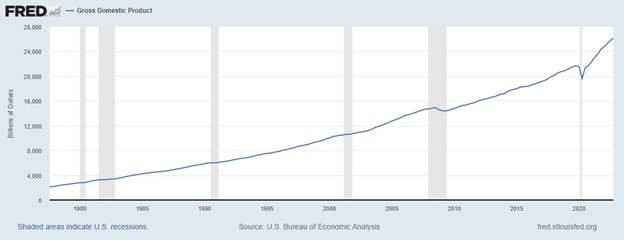
2. Employment Rebound
The COVID-19 pandemic reshuffled the labor force, Barr says. Overall, the labor participation rate in the U.S. is lower than before the pandemic.
“So, now we have companies that want more labor, but we still have about 2 million people still on the sidelines,” she says.
Currently, there are 1.7 jobs for every worker looking for a job.
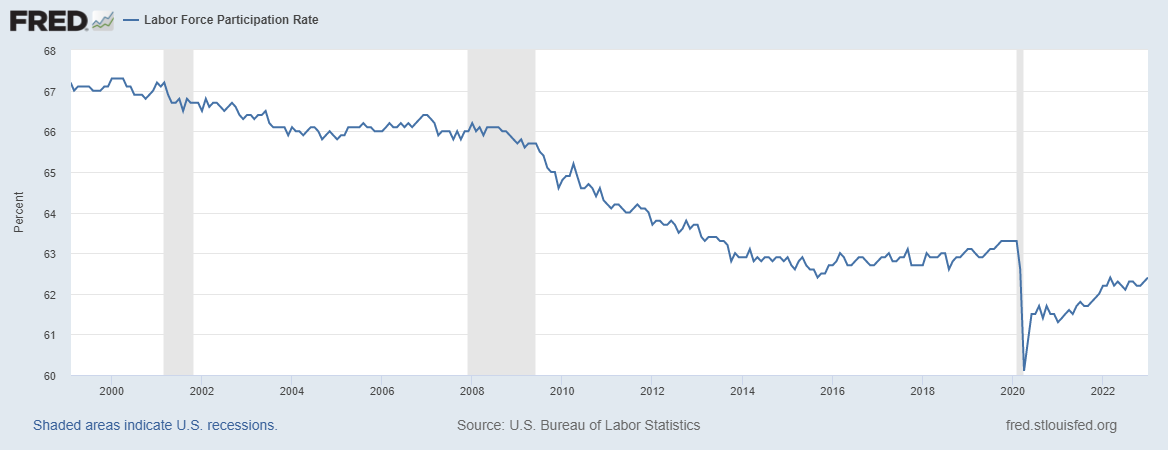
On the flip side, those companies that can are hiring as many people as they can. Barr says that is known as labor hoarding, where companies add extra people to their teams as a hedge against losing employees.
The tight labor market should help reduce the recession impact, Barr says.
“The last time we were in a recession it took about six years for the labor market to recover in unemployment,” she says. “This year, if we run into that situation, I think it'll be short-lived.”
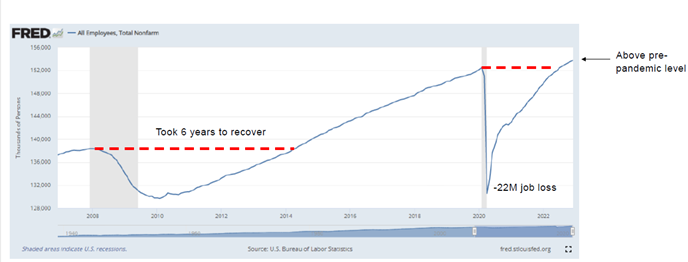
3. Lower Supply Chain Pressure
After three years of supply chain backups and frustrations, that picture is finally starting to improve. Barr reports the global supply chain pressure index is better now than in the last two years.
“We expect that to continue to see improvement,” she says.
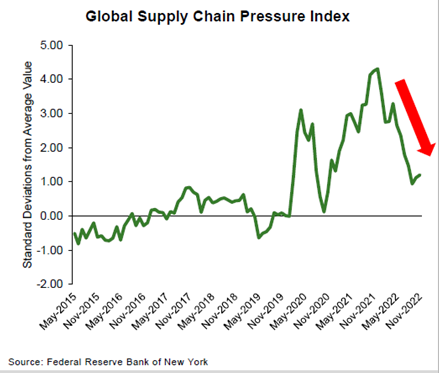
4. Tight Global Commodity Stocks
Overall, Barr says agriculture is an economic bright stock.
“Despite all the economic slowdowns, demand for crops is still growing,” she says. “On the supply side, just the past few years we have seen quite a bit of crop loss in many parts of the world. So that keeps stocks pretty tight. Therefore, with demand still holding supplies are still uncomfortably tight. So, I think that's going to be a sign that we're going to see some of these prices continue to be elevated.”
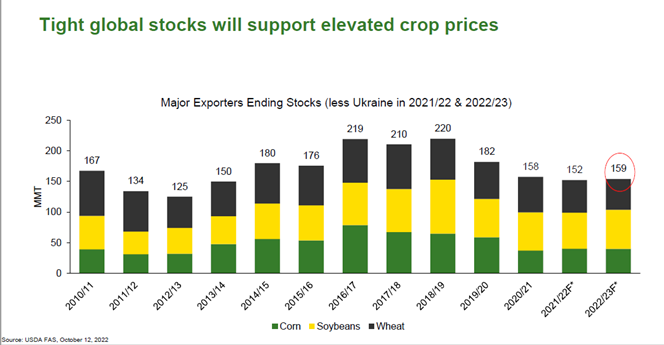
Barr spoke at the 2023 Top Producer Summit in Nashville. Listen to her conversation with Andrew McCrea on the Farming the Countryside podcast:







